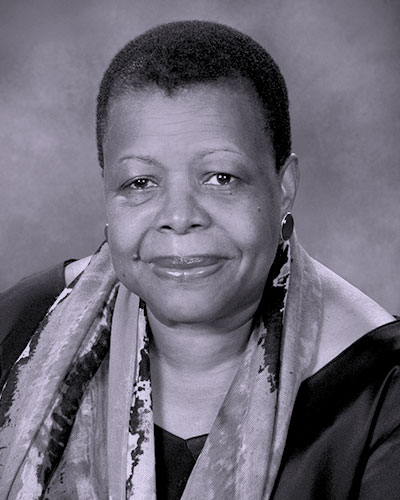
Hello World,
Editor’s Note: What follows is not a typical blog post. It is a part feature story and part column that I wrote about one of my favorite childhood authors Brenda Scott Wilkinson. I hope you enjoy it!
In one of my favorite hymns “Amazing Grace,” it is said, “I once was lost, but now am found.” Earlier this year, Brenda Scott Wilkinson, a Georgia native who wrote a series of children’s books: Ludell (1975), Ludell and Willie (1976), and Ludell’s New York Time (1980), was listed among the “Lost Southern Voices” honored in Revival: Lost Southern Voices.
Originated by Georgia State University and Perimeter College professors, writers and scholars are invited to “discuss favorite authors whose works no longer receive the attention and reading they deserve” through this two-day Georgia literary festival celebrating lost and underappreciated Southern writers, according to the festival website. Despite being very celebrated and widely read at one point, having been the recipient of the New York Times Book Review Outstanding Children’s Book of the Year, an American Library Association Best Books for Young Adults and a School Library Journal Best Children’s Book designations for works in her trilogy, Wilkinson was likely presumed to be lost by festival organizers as she does not have a website nor is her contact information easily accessible through other means.
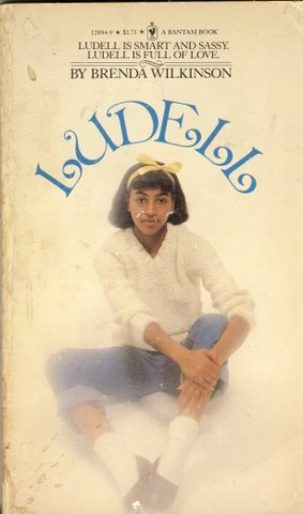
But through God’s amazing grace and the journalistic skills instilled in me by the Henry W. Grady College of Journalism & Mass Communication at the University of Georgia, another of Georgia’s wonderful institutions of higher education, I was able to track down one of my favorite childhood authors and interview her about her writing career. Although Brenda, which she asked me to call her, was born in Moultrie, Georgia in 1946, her Ludell series is based in Waycross, Georgia. “We moved from Moultrie to Waycross when I was in the fourth grade when I was about eight years old. I lived in Waycross until I graduated from high school in 1963,” says Brenda. According to her first book’s description, “Ludell Wilson is a wisecracking bookworm and burgeoning writer who adores her best friend Ruthie Mae, her loving–but strict–grandmother, and everything about growing up. (Including her first pair of blue jeans, and her first boyfriend.) But in the still-segregated South, Ludell’s warm community exists side-by-side with poverty and injustice.”
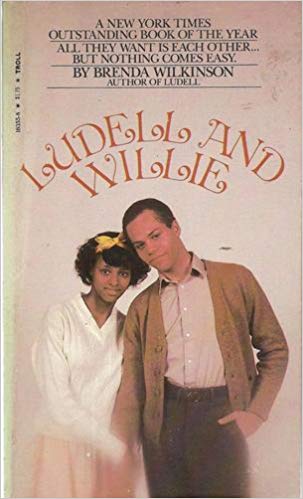
Brenda admits that Ludell’s childhood, in part, mirrors her own. “I wasn’t raised by my grandparents, but I grew up in a generation whose parents were a part of the Great Migration,” Brenda says. “Parents who couldn’t find decent work and they would often leave children with grandparents or other relatives. The same thing that the Caribbean people and Africans do now. So I grew up with a lot of children who grew up in those kinds of households. And I did attend a segregated elementary school that went from first to seventh grade and in high school from seventh grade to senior year.”
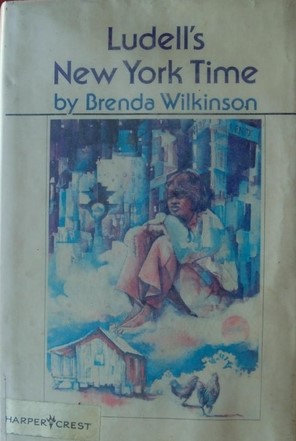
Unlike Ludell, however, Brenda didn’t want to be a writer as a child. “I knew I was an avid reader, but I wanted to be a secretary. There was this show that came on, The Ann Sothern Show, where this woman was a secretary and I thought that was the most glamorous thing in the world, to be able to sit at a desk with a typewriter even though when I took typing in high school, I did poorly,” says Brenda with laughter. “I just thought it was very glamorous when you could have an office and sit and type.”
In retrospect, Brenda recalls developing a love for words while not realizing what was happening. “In the fifth grade, we had this teacher who would read aloud and I tell you, there was nothing like sitting in that classroom and having her read those stories aloud,” she says. “It was just a wonderful memory I had. That kind of impacted my thinking around writing. And I think the school devotions we had back then did too. Every day, we would sing a little spiritual song out of the hymnals. Depending on the class, sometimes we would go around a say a Bible verse. I think I incorporated that in my stories, you know when one of the boys said, ‘Jesus wept’ during his time. We had a couple of twin girls who memorized these long verses to show out. But that was a part of our discipline.”
However, others took notice of Brenda’s love for words and writing ability at an early age. “In high school, I did a book report, and the teacher thought I had copied from some place. Years later, when I came back, they had a big book party for me in Waycross at the library and that teacher was there. She said she knew there was something special about my writing. But you didn’t have those kinds of dreams growing up under segregation. When I got nominated for the National Book Award, I didn’t even know what the National Book Award was.”
Like Ludell’s mother, Dessa, after graduating from high school, Brenda took part in the Great Migration and moved to New York where she lived with her older sister who had moved there ahead of her. “When I graduated from high school, I very much wanted to go to college, but we didn’t have any money for that. I remember writing home to my mother asking could she borrow money, and she said, ‘Baby, you’re going to have to get a job. Mother can’t help you.’ So I got a job at Citibank and signed up for some classes. I worked at the 399 Park Avenue branch and took some night classes at Hunter College because it was just up the street.”
During that time period, Brenda met a man through friends at the church she attended. The two married shortly afterward and moved to Alaska where the military had stationed him. And their first daughter was born there as well. However, the small family eventually did move back to New York. The change in location wasn’t the only change on the horizon for the family. “By this point, I was married, but my marriage was falling apart,” says Brenda. “The only thing I could do was go to the library and take my kids to the library because it was free. I couldn’t go out and hang out or get dressed up or do anything so the library was the place where I found solace. And this was during the ‘60s when the Black Arts Movement was taking place so I started attending a writing workshop at the Countee Cullen Library and the poet Sonia Sanchez was leading the group.”
Although Brenda had begun writing poetry about “everyday events with [her] children,” she still hadn’t considered writing as a career choice until she read her poetry in front of an audience. “Sonia had poems in this book The Poetry of Black America: Anthology of the 20th Century written by Arnold Adoff. He put together this anthology with black writers, and Sonia Sanchez was one of the poets featured in the book. So rather than go up and read her poetry at her time, she asked that her slot be given to members of her workshop.” Unbeknownst to Brenda, editors from Harper & Row Publishers Inc., now HarperCollins, were in the audience. “The next time I got back to the workshop, there was a letter from the editors from Harper & Row waiting for me. And everyone thought was such a big deal. They asked me to come down and talk to them.”
That meeting officially launched Brenda’s career as a writer. “They asked me, had I ever thought about writing. And I said, ‘Not really.’ They asked me, what were my favorite books? And I said, ‘The Little House’ books by Laura Ingalls Wilder. I think the thing that made me relate so much to those books because although it was about pioneer times, it wasn’t so far removed from what we experienced growing up in the South with a fireplace, you know struggling and everything. They were just intrigued about what I said about growing up under segregation, and they wanted to know more about it.” Following that meeting, the book publishing company offered a contract to Brenda with an advance. “After I wrote the first book and it did well, they offered me a second contract. Bantum Books did the paperback version. The books did very well and Harper & Row had the book jacket for my book all in the bookstore windows.” Also, Christian Science Monitor, Kirkus Reviews, Nation, and The New York Times Book Review reviewed the Ludell series.
As Brenda grew up in the segregated South, she felt ill-prepared for the experiences she began having as a celebrated children’s author. “They would take me out to meet all of these people and I was so uncomfortable. I remember being in the Russian Tea Room and Jackie Onassis and Peter Duchin were at the next table. I said, ‘There is Jackie Onassis.’ I met all kinds of people. The woman who wrote Freaky Friday, I think her name was Mary Rodgers, she wanted to meet me.”
Brenda recalls visiting California as an author. “I remember they sent me out to California for a conference. It was the first time I had been to California, but I just stayed in my hotel room the whole time until it was time to go down for dinner or something. I didn’t have the sophistication to be meeting up with these people. It was just a whole new world.”
Additionally, not having a literary agent or others to advise her, she felt she made some mistakes along the way. “I was 29 years old. If I had had better advisers around me, I may have done better. I didn’t have an agent. I didn’t get the best advice. I got mad with Harper & Row at one point because I thought they weren’t moving fast enough on a project so I left them and went to another company. I just got poor advice, but nevertheless, I have no regrets.”

After she completed her third novel, she became a staff writer for the United Methodist Church’s Board of Global Ministries in New York. “They wanted me write children’s materials about Africa so they sent me to Africa. And that was such a blessing because I would have never had the money to do that. I went to Angola, Zimbabwe, Mozambique, South Africa, Senegal, all those countries.” Her book was entitled Under the Baobab Tree: Children of Africa. She also wrote Concerning Prayer through her work with the United Methodist Church.
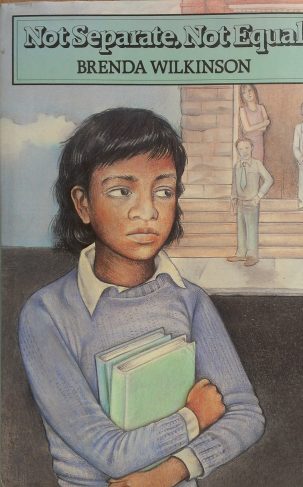
A Georgia Writers Hall of Fame nominee, Brenda continued to write outside of her staff writing job. She wrote another novel Not Separate, Not Equal about six black teenagers who were abducted when they attempted to integrate a Georgia high school. Her repertoire also includes non-fiction: African American Women Writers (Wiley & Sons), The Civil Rights Movement (Random House) and Jesse Jackson: Still Fighting for the Dream (Simon & Schuster). By then, she had met and circulated with other notable black writers including Maya Angelou, Toni Morrison, Paule Marshall and James Baldwin. Also, fellow Georgia native and author John Oliver Killens became a mentor.
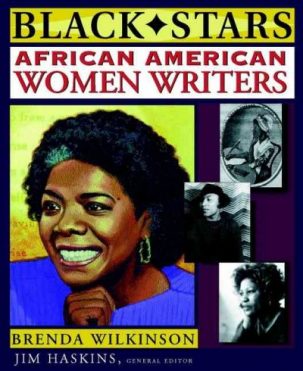
In 2003, she retired from her position with the United Methodist Church and moved back to Georgia, this time in Atlanta, shortly afterward. “I was 57 years old when I retired. But I came back to Georgia when I was 60 years old. I couldn’t afford to stay in New York. I had a nice pension, but it was costing me too much to live there. I enjoyed the years I was in New York, but I was also ready for something different. I like waking up and hearing the birds and seeing greenery.”
Brenda was also looking forward to being alone to write. She aspires to write more stories about black Americans living through segregation. “I think people have this idea that we were so miserable, but we had a lot of good times. During the 1950s, they built recreation centers for black children all across the South because they realized that integration was coming and they wanted us to have our own swimming pools. We had a nice place where we would go dance and play ping pong. We had our bath houses. It was where we met our boyfriends.”
And she would like her stories to go beyond the pages of a book. “It’s funny because I just picked up Ludell and Willie the other night and started reading it again. I wish someone had done a television series, like Happy Days where they had the white teenagers. I feel like no one has ever taken a close look at what our lives were like growing up under segregation during the teenage years and everything. I think it would make such a wonderful series.”
But her writing plans have been put on hold for now. As the reverse Great Migration for black Americans continues, her youngest daughter and her children moved from New York and in with her. As a result, Brenda hasn’t had much solitude to devote to her writing. And wanting to contribute to the household bills, her daughter put the home phone in her name – which makes it hard for people to find Brenda. “My house phone is in one daughter’s name and my cell phone my other daughter in California bought me so that phone is in her name. So how did you find me?” she asks.
After scouring the Internet over a three-day period, I discovered the name of her church in metro Atlanta and called the church. I left my contact information with the church secretary and asked her to pass it along to Brenda. “I told the church secretary that my children think it doesn’t matter that nobody can find me at age 73 years old. They think nobody is looking for me,” Brenda says with laughter. Well, that’s not true, Brenda. She once was lost, but now she has been found…
Any thoughts?

I loved reading Ms. Wilkinson’s books. I was about 12 when I discovered The Ludell series. My librarian at my Junior High school even found her phone number for me to call her. My mom let me call a couple of times. Thank you Ms. Wilkinson for talking to me. I will never forget you ❤️ I’m 52 years old now and Ludell is still my favorite book.
I loved this so much. If in fact you still have contact with this author, I would love to send her an email thanking her for her books. I was a young Puerto Rican girl growing up poor in the Bronx and in fourth grade her books helped me find sanctuary and hope. I am a writer and a professor now at Bronx Community College and I include Ludell in many places. I love this! Thank you.
Hi Melissa,
Ludell was a wonderful character, and I’m glad your love for that character brought you here. I plan to reach out to Brenda in the next few days. I will ask her if I can share email address and get back to you. Thanks for your feedback!
Ludell, was my favorite book. I can not locate my original copy but down through the years I often thought about my Ludell book. I loved to read growing and truly cherish the book.
I have dreamed of writing Ms. Wilkinson since I read her book in 1993. I was 10 yrs old .my whole family read it and my mom , with tears in hers eyes talked about how similar their childhoods were. I am 42 and Ludell is my favorite book of all time. I just want to write her and let her know how much the book means to me. She’s literally my mother’s age and I think about this often. Can you please help me reach her?
It is so wonderful that you located one of the best young adult authors ever. I still have Ludell and Ludell and Willie that I purchased with my own money when I was a young teen. My mother read the books too. We still talk about the characters even today. We never knew there was a third book in the series! I would love to get a copy of the third book to read and find out whether Ludell and Willie live happily ever after. Thank you for interviewing this wonderful, inspirational woman.
This is my all time favorite book series! The only problem is that I never read Ludell’s Time In New York! I also can’t find a copy to purchase.
I came across this article and it lightened my soul! I loved my Ludell books so much. I was 12-13 years old and I would get them from the Library. I would be so engrossed in the characters that my mother still talks about how I would tell her about them as if they were my real friends at school. These books were so inspirational for me. The books gave me an escape from the life. God bless you for finding Brenda Scott Wilkinson for all of us to have just a little more of her.
I’m so glad you found Brenda Wilkinson. I ravenously read the trilogy when I was young in the 80s.
This was posted a while ago so I hope that you will see this. Brenda Scott Wilkinson and her characters were a huge inspiration for me. I was raised in a strict upbringing, and to find someone like me who had to “sneak ” and have fun was such a comfort. I had the blessing of finding the Ludell Trilogy, as I call it, through Amazon and Good Reads. Once a year I take them down from their place of honor and read them cover to cover. Its like visiting old friends.
Hello Brenda. I remember you well from Center High School, in Waycross, Ga. My name is Frances Virgil Mills and I live in Conyers, Ga. I would love to connect with you. I knew your sister Deloris very well and she had told us about your fame as an author. Deloris was a special part of our family – the Mills family – dated my brother in law Randy, and was best friends with my sister in law , Patricia. You made our hometown proud
young lady. My email is Revfvmills@aol.com.
These books brought me so much joy in middle school and STILL do to this day. It was part of the “Book it” program and made me fall in love with not only reading but black history. Ms. Wilkinson is a literary genius!! I have so much love for these books. They were definitely an integral part of my life. Thank you for sharing them with the world!!
The “ludeell”” trilogy was a favorite during my early teen years in the early 1980s. I read all 3 books until the covers fell off. I always thought the story mirrored that of my mother, a South Carolina native, born the same year as Ms. Wilkinson.
Thanks for unlocking fond memories of books that meant so much to a young Black girl.